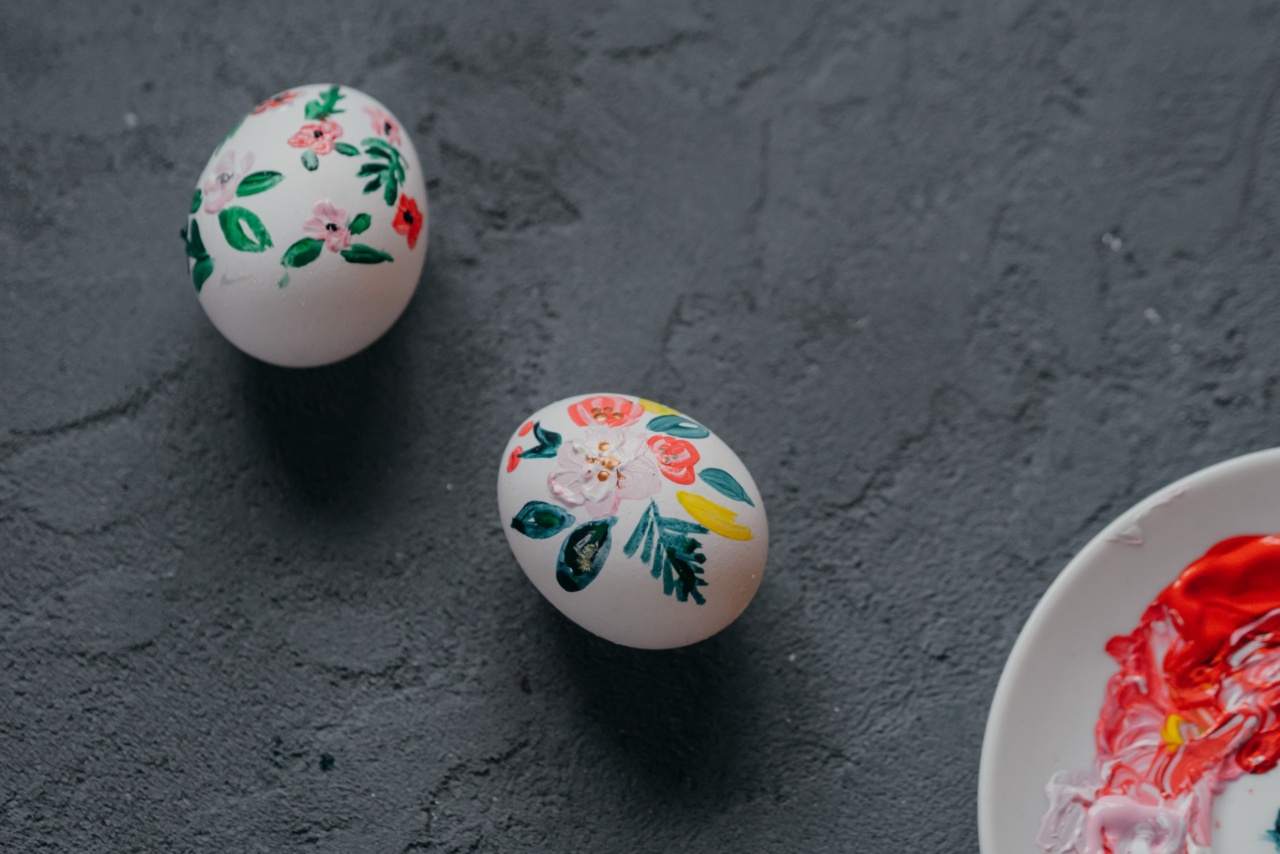Easter is a wonderful time to indulge in delicious seasonal treats and spend quality time with loved ones. However, after the festivities, it’s important to focus on revitalizing and rejuvenating your body, particularly your liver.
A healthy liver plays a crucial role in detoxifying the body and maintaining overall well-being. To help you kickstart your liver cleanse this spring, we’ve compiled a list of seven Easter foods that can naturally promote liver health.
1. Artichokes
Artichokes are not only a delicious addition to your Easter feast, but they are also incredibly beneficial for your liver. These spiky vegetables are packed with antioxidants, which help protect the liver from toxins and reduce oxidative stress.
Artichokes also contain a compound called silymarin, which has been shown to support liver health and promote the regeneration of liver cells.
2. Beets
Beets are vibrant and nutrient-rich root vegetables that can provide excellent support for your liver. They are a great source of betaine, a compound known for its liver-protective properties.
Betaine helps the liver process fats, prevents the accumulation of fatty deposits in the liver, and supports proper liver function. Including beets in your Easter meals can help eliminate toxins and improve your liver’s detoxification capacity.
3. Garlic
Garlic is a powerful superfood with numerous health benefits, including its ability to promote liver health. It contains sulfur compounds that activate liver enzymes responsible for the removal of toxins from the body.
Garlic also contains high levels of allicin, a compound that has been shown to protect the liver from damage caused by inflammation and oxidative stress.
4. Turmeric
Turmeric, a vibrant yellow spice commonly used in traditional Indian cuisine, is well-known for its potent anti-inflammatory and antioxidant properties.
Curcumin, the active compound in turmeric, has been extensively studied for its potential to protect the liver against various liver diseases, including liver damage caused by toxins. Adding turmeric to your Easter dishes can give your liver a much-needed detox boost.
5. Leafy Greens
Incorporating leafy greens into your Easter meals is a fantastic way to support your liver health. Vegetables like spinach, kale, and arugula are rich in vitamins, minerals, and antioxidants that help cleanse and detoxify the liver.
They are also high in chlorophyll, which aids in the elimination of environmental toxins and heavy metals from the body.
6. Lemons
While lemons may not be the first thing that comes to mind when you think of Easter, they are excellent for supporting liver health. Lemons are packed with vitamin C, a powerful antioxidant that stimulates the production of liver-detoxifying enzymes.
They also contain citric acid, which helps break down toxins and flush them out of the body. Squeeze some lemon into your water or add it to your Easter recipes for a refreshing liver cleanse.
7. Onions
Onions, commonly used as a flavoring ingredient in various dishes, also offer substantial benefits for liver health. They contain sulfur compounds that activate detoxification processes in the liver, helping it eliminate toxins more efficiently.
Onions are also rich in antioxidants, particularly quercetin, which helps protect liver cells from oxidative damage caused by toxins.
By incorporating these seven liver-loving foods into your Easter meals, you can give your liver a much-needed spring clean. Remember to also stay hydrated, get plenty of rest, and engage in regular exercise to support your overall liver health.
Happy Easter and happy cleansing!.





























